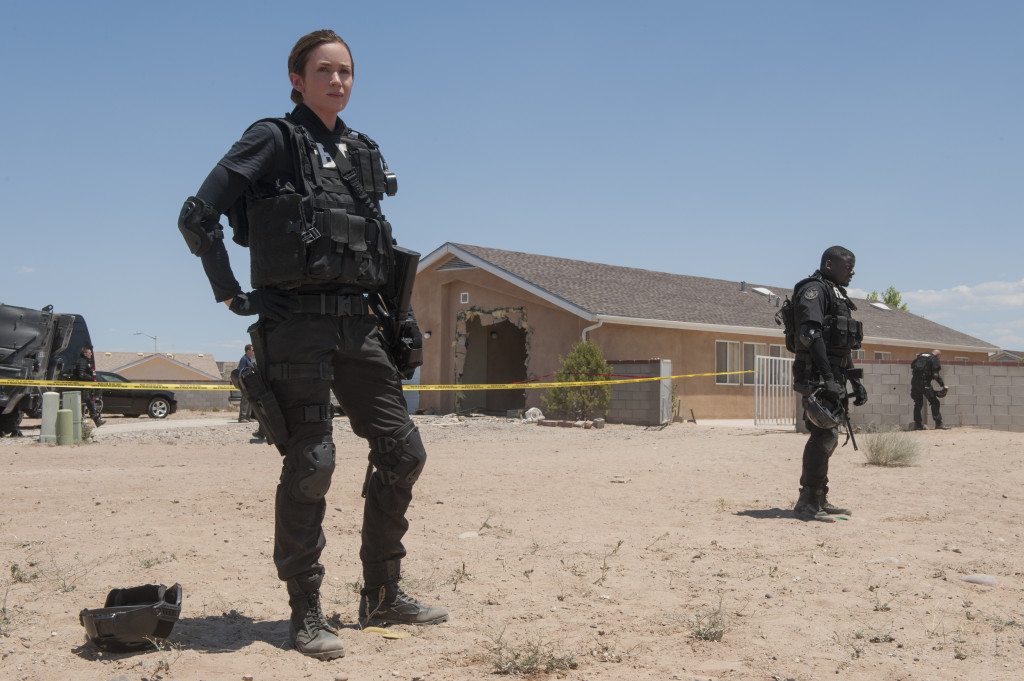Why Denis Villeneuve is perfect for ‘Blade Runner 2’
[dropcap]I[/dropcap]t’s fairly safe to say that no one wanted a Blade Runner sequel. From The Matrix sequels to second Speed and Exorcist films, there is a general consensus that Hollywood would be better off leaving classic movies alone. This particularly true for Blade Runner, a seminal sci-fi adaptation of Philip K. Dick’s novel Do Androids Dream of Electric Sheep that created a transcendent dystopian world with philosophical ideas to match.
However, as Blade Runner Two has developed, the potential for it to become an exception to the trend has increasingly grown. This is mostly due to the appointment of Denis Villeneuve as director. The French-Canadian filmmaker has gone from strength to strength in the last few years with the double hit of Enemy and Prisoners in 2013 and the release of Sicario last month (he also helmed Un 32 août sur terre, Maelstrom, Polytechnique and the brilliant Incendies, but this piece will focus on his latest three). All of these movies blew me away and made me realise that Villeneuve is the perfect man to take the reigns from Ridley Scott.
A perfect control of mood and tone best describes Villeneuve’s films. He executes each scene with a deep understanding of how to combine each element and how it will affect an audience. Take Enemy; Villeneuve calmly lets each scene unfold whilst instilling a sense of disorientation by infusing the aesthetic with spiders, keys and surreal imagery. He appears to initially lull the viewer into a false sense of the story’s simplicity whilst constantly challenging this with seemingly unrelated motifs and changing perspectives between the doppelgangers. The ability displayed here is essential when entering into the world of Blade Runner. This was a movie not centred on action set pieces or quickly developing storylines, but on building atmosphere as we see Rick Deckard explore dystopian Los Angeles. Blade Runner unfolds gradually but with a deep understanding of mood, and like Enemy, slows builds a foreboding feeling of paranoia as it engrosses you in the world that it has created.
Villeneuve’s other great transferable asset is his ability to create a film around larger ideas in a nuanced and understated way. Enemy is a deeply psychological film that explores the disintegration of a man as he delves into himself and discovers his ‘other’ within. As Villeneuve said, the film is a ‘documentary about the subconscious of Jake Gyllenhaal’ as he debates returning to his pregnant wife. This is only alluded to though and the audience is ultimately left to its own interpretations. Similarly, Blade Runner presents numerous ideas of moral philosophy. The actual film however plays as a noir mystery and allows the implications of its world to settle and expand within the viewer’s mind afterwards. Sicario and Prisoners also encapsulate these traits with the former unfolding as a thriller whilst suggesting greater issues with the War on Drugs. Prisoners meanwhile acts as a eulogy for the Iraq war with Keller Dover (Hugh Jackman) representing America believing that its desire for justice allows it to act without regard for morality and the law. Blade Runner is full to the brim with ideas but gives its audience the virtue of viewing it on a multitude of levels, and Villeneuve clearly understands this in his work so far.
Beyond their comparisons, Villeneuve’s unique vision contains so many elements that would work perfectly in the world of Blade Runner.
Beyond their comparisons, Villeneuve’s unique vision contains so many elements that would work perfectly in the world of Blade Runner. He never shies away from depicting brutality – whether in Sicario’s interrogations or the ruthless methods of torture that are inflicted on Alex Jones (Paul Dano) in Prisoners, he has always embraced the violence of a scene. This is by no means superfluous, with the torture in Prisoners representing wider themes of revenge and parental protection, and in Sicario depicting the brutality of the War on Drugs. I would personally love to see this trait play out in Blade Runner. It is a world of fear and desperation and it would be enthralling to see Villeneuve apply his fascination with the causes and implications of violence to such a world. This was not necessarily a major part of the first film but could emphasis its major themes in a brilliant way.
Denis Villeneuve is a multi-faced director if there ever was one. He is a master of mood and tension who is able to work on a small (Enemy) and large (Sicario) canvas to create a sure handed, subtle piece of art. Ryan Gosling also recently confirmed that he would be co-starring in the film with Harrison Ford, and after seeing Drive and Only God Forgives, it’s hard to think of a more ideal casting decision. There’s a long road ahead for the Blade Runner sequel but with this director at the centre, I’m not too worried. Meanwhile we can look forward to Story of Your Life starring Amy Adams and Jeremy Renner, which will be sure to develop his sci-fi skills.




Comments